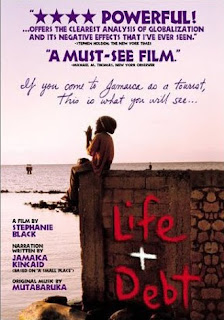
Here is my understanding of Populism after looking it up on Wikipedia, a populist leader is one who typically takes side with the so called "common people". Typically this leader would create the divide between the people in the state almost like the marxist "have and have nots". It's usually a negative accusation and a label that most political leaders reject.
So in the film when Evo Morales , is accused of representing a "dangerous form of populism" one then has to ask: dangerous to whom ?
Well first of all the reason he and other Latin American leaders ( this is just my speculation) might be called populsit is because they are coming out of a social movement. The discontent in these nations is wide and overwhelming; they seem to hate the government and have a consensus that the recent or current administrations are corrupt.

Evo Morales was seen in the film leading many of the protests, one of which was the conflict of natural gas in Bolivia.

Evo Morales was seen in the film leading many of the protests, one of which was the conflict of natural gas in Bolivia.
He gets elected to Presidency with more than 50% of the vote. Other information beyond this film comes from the book How To Rule The World by Marc Engler. We read a chapter for class called "Latin America In Revolt". It was about movement towards change happening in Latin America and further explores the actions and leaders of each country, leader that have also been called not only populists but anti american and demagogues. While Morales did come to power by social movement we cannot be to sure that the word demagogue describes him correctly, he did after all deliver on his promise to nationalize energy sources in Bolivia and use the benfits of this towards social reform programs. This move created a international "WTF?" In England and the U.S. he was panned by editorsand moved our former secretary of state Condeleeza Rice to use the term "demagoguery" to characterize Morales and the social movements in Latin America(281).
If populism is linked to "anti-americanism" and is called "dangerous", then perhaps it is not a stretch to say that maybe the danger that Latin American "populism" poses is a danger to the intense and long hold the U.S. has had i nthe region of the worrld for so long. The danger in this might be that the U.S. might not be able to exercise power freely in these countries any longer.
I also wonder if perhaps the word "populist" is used by critics to discredit these leaders and shed a negative light on what seems to me a very positive move that is going on in Latin America.


